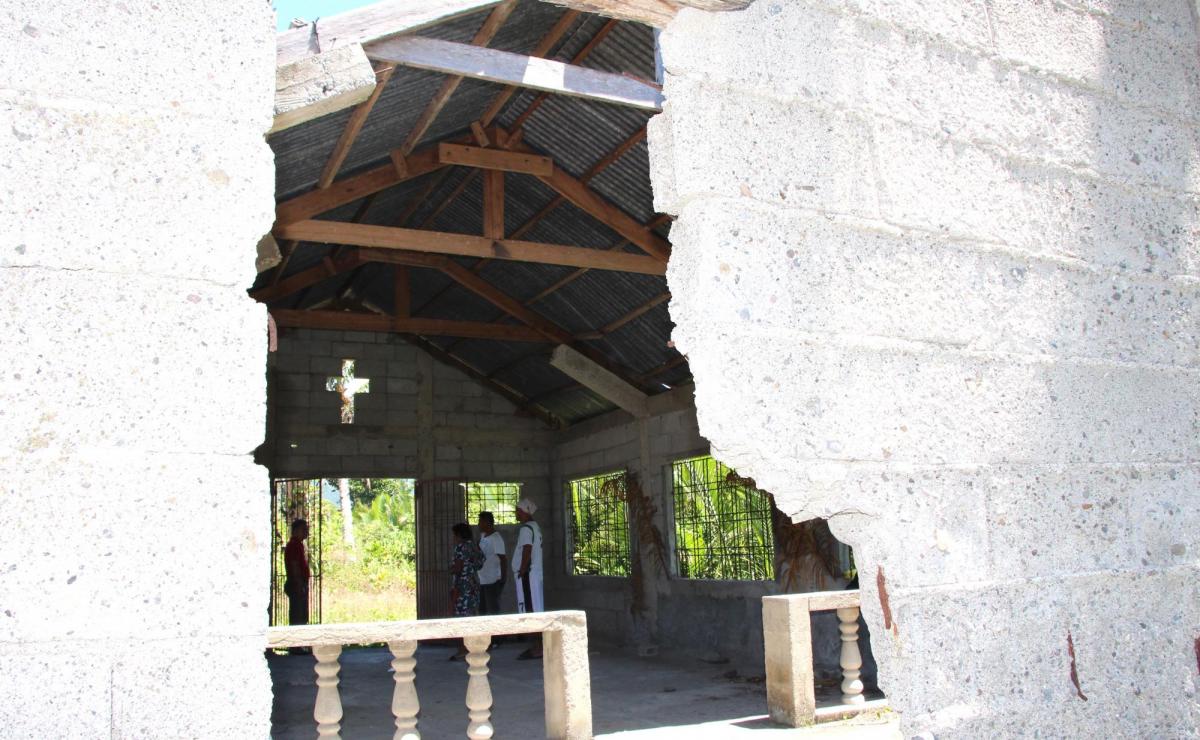Capacity for Disaster Preparedness and Emergency Response Workshop - Lutheran Church in the Philippines

Background and Rational for the Workshop
The Philippines, made up of over 7,000 islands faces different kinds of natural hazards like floods, landslides, earthquakes, volcanic eruption and particularly typhoons. It is estimated that an average of 20 typhoons hit the Philippines annually. It is an area of intense seismic activity because of it's location along the border of two tectonic plates on the 'The Pacific Ring of Fire' which makes it prone to earthquakes and volcanic eruptions. In the recent years, typhoons have become more and more violent that the damages wrought have brought about not only the massive destruction of crops and properties but also misery and grief to those who lose their loved ones. Typhoon Yolanda, internationally know as 'Typhoon Haiyan' was the 25th tropical storm to enter Filipino waters in 2013 and badly damaged the churches in Balugo, Mahayag and Tacloban City. According to the Filipino government over 14 million people have been affected across 46 provinces and Tacloban city suffered more loss of life than compared to any other area in the Philippines.
The Lutheran Church in the Philippines lives and works in these typhoon-prone areas, therefore the LCP Disaster Response team immediately responded by surveying and verifying the damages caused to the church buildings and residences of church members in these areas. The LCP Disaster Response team secured and distributed the needed food and clothing to typhoon survivors and comforted them through words of encouragement and reminded them of our hope in Christ Jesus, our Lord. Despite these efforts by LCP Disaster Response team, there is still a need to enhance the capacity of risk identification, risk assessment, risk mitigation, and contingency assessment. This will equip the LCP Disaster Response team members to respond not only after any disaster but most importantly to be of assistance to reduce or minimise the risk.
The LCP through its involvement in recent disasters has come to understand that not only the government of the day has the responsibility to care for its citizen, but that the church is called by God to respond to meet both the spiritual and the physical need, therefore, the church needs to adopt a holistic approach in serving vulnerable people, especially those who live in disaster-prone environments. There is a need to explore and strengthen our theological understanding to address how we perceive “Disaster” or “Suffering,” not as a punishment from God, but at times as a consequence of our failure to care for God's creation. LCP, as one of the stakeholder in disaster management in the Philippines, wants to have a clear theological mandate of church Diakonia.
Objectives of the Workshop
- To bring together learners, practitioners, and experts to further increase understanding on the disaster risk reduction and preparedness in the context of member churches and their communities
- To share good practices and increase member churches motivation to network with ACT Alliance and other international forums.
- To have a better understanding of disaster preparedness work in the context of Philippines and on the basic humanitarian principles.
- To gain improved knowledge in networking and partnership, coordination and mapping the existing networks and good practices.
- The have the necessary tools to start implementing program activities and to connect with national and global networks in the context of Philippines.

